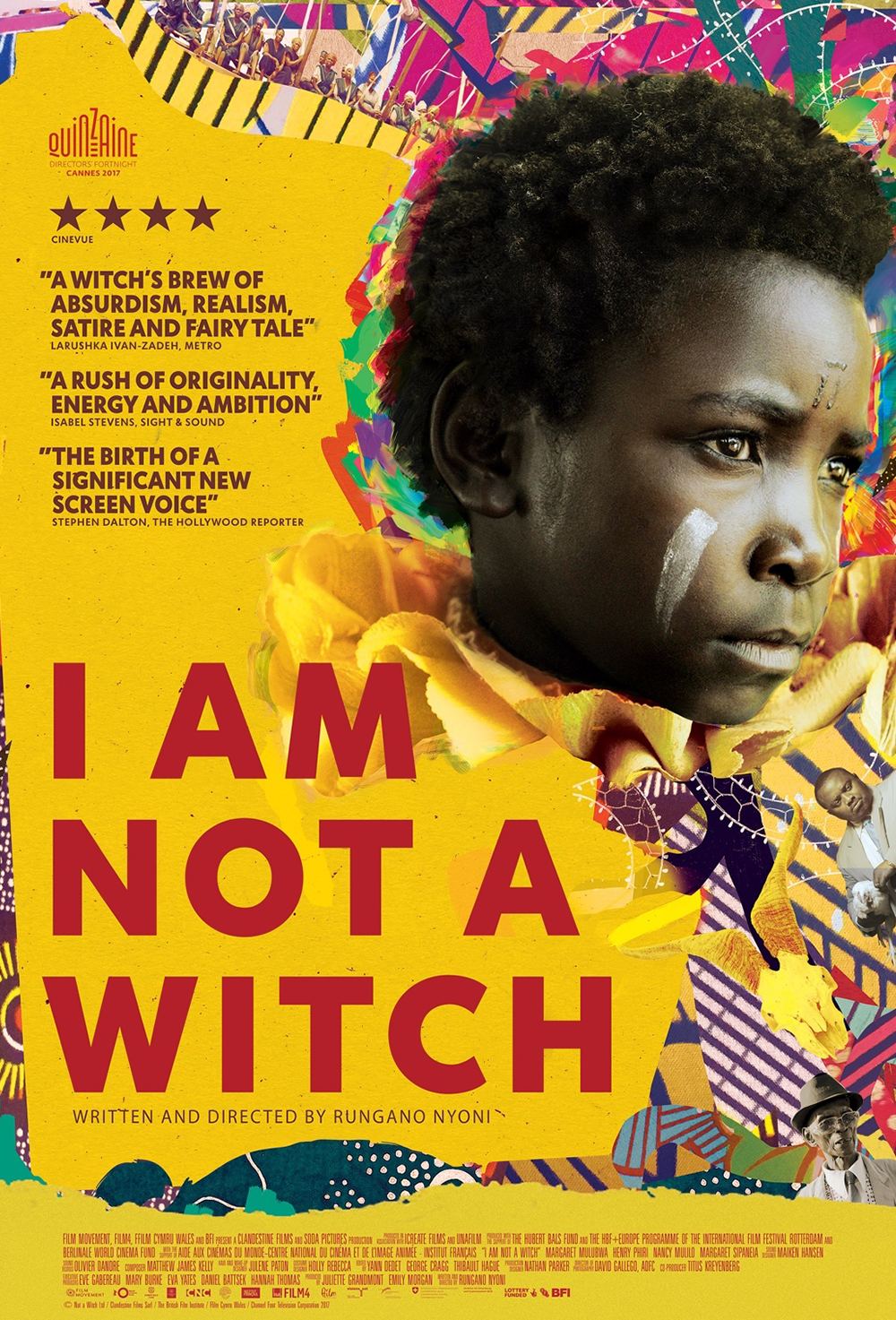
As part of our Black History Month programming, California Film Institute is spotlighting four local Black filmmakers we think our community should know about. We have invited these filmmakers to write an essay responding to our theme, “Celebrating Black creativity in cinema”, and reflecting on what inspires them to create. Throughout February, we will publish a weekly essay from this series.
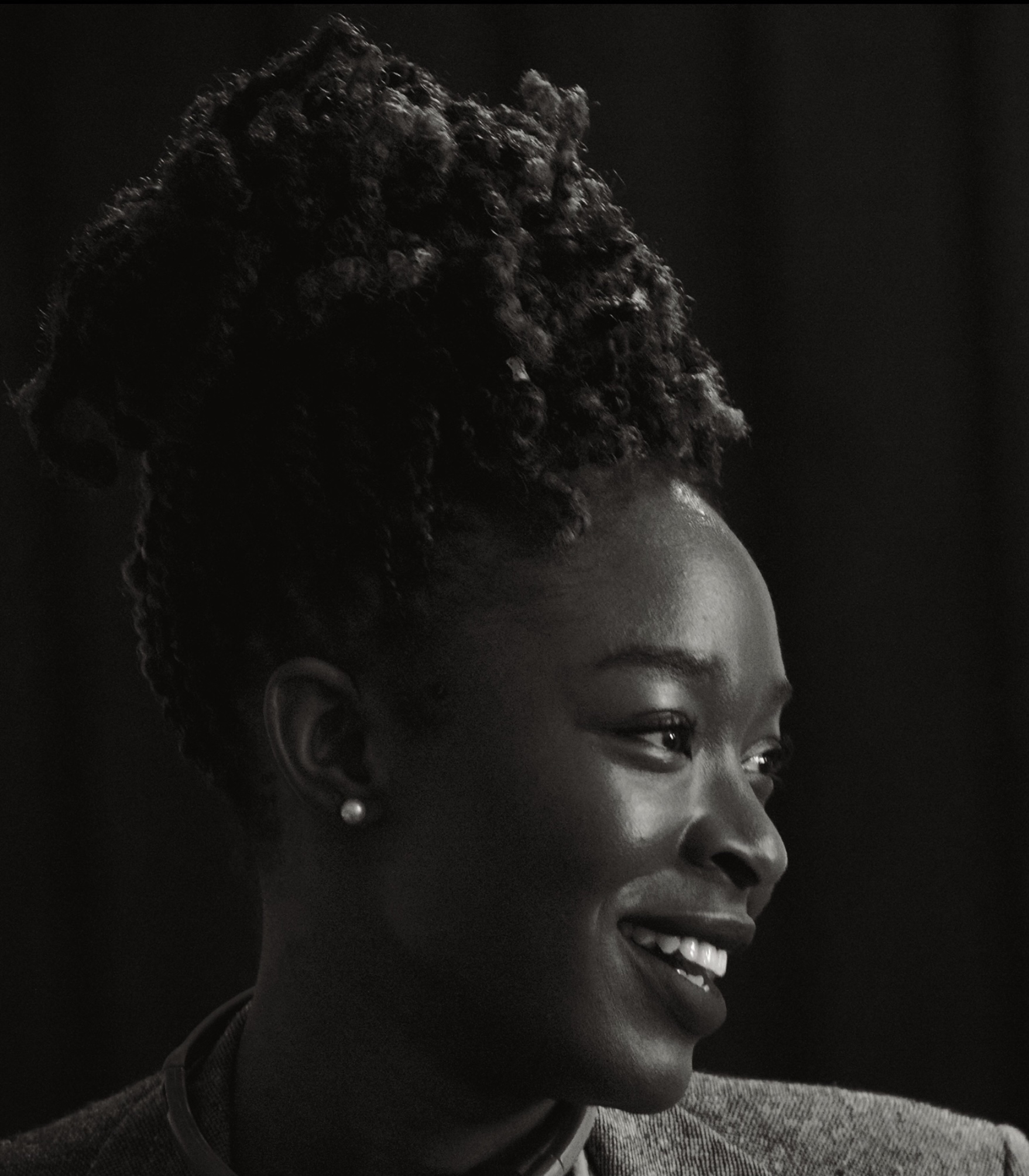
This week, we are kicking the series off with, Osinachi Ibe, who is curating our Black History Month program. Osinachi is a Nigerian-American filmmaker, artist, and programmer based in the San Francisco Bay Area. She creates intimate, feminine portraits that meditate on the complexities of the spirit, heart, and the divine. Her work is expressive and incorporates elements of narrative and experimental cinema, and poetry. Osinachi earned her MFA in Film Directing from Chapman University where she received a graduate fellowship. She is a recipient of the Meredith MacRae Memorial Award from Women in Film (Los Angeles) and the Leo Freedman Foundation Fellowship in Film Grant. She is a recipient of the 2022 Sundance Uprise Grant Fund and received second round consideration for Sundance Institute’s 2023 Development Track. Osinachi is currently a filmmaker in residence in SFFILM’s 2023 FilmHouse Residency where she is developing her first feature film, Tales From Under the Sun, a surreal drama about love and transcendence.
Osinachi Ibe Reflects on Black Creativity in Cinema
For me, creating art is intuitive and my artistic practice is a form of spiritual practice. A lot of my work comes from my curiosity about themes and questions that reoccur in my life. Themes like what it means for a person to be inherently good, the connection between humanity and divinity, and love, redemption, and transcendence. I am currently developing my first feature film, Tales From Under the Sun, which is about two childhood best friends who discover they have fallen in love with each other during their first summer apart, and embark on a spiritual journey that changes them forever. The film primarily meditates on first love, transcendence, and transformation but it explores some of the other themes and ideas that I am curious about.
I am also very inspired by art and artists I encounter, especially when it comes to contemporary independent cinema. Something that really fascinates me is narrative-documentary hybrid films —just when you think you’ve seen every genre of cinema, something new and sublime emerges! Hybrid films energize me and feel like an exciting new cinematic frontier. I have a tremendous amount of respect for the artists who are exploring this form of expression. One of my favorite films from last year, The Unknown Country (Morrisa Maltz, 2022), is a hybrid film about a woman traveling though the Midwest, to the Texas-Mexico border, while mourning the death of her grandmother. The film poetically weaves documentary vignettes about the people the protagonist meets through her journey into the larger narrative story. I had the pleasure of talking to the filmmakers and the lead actress about their creative process. I felt liberated by their ability to find a process that was specific to the way they wanted to work, and a creative expression that is unique to them and the kind of films they want to make.
The liberation I felt makes me think a lot about Black creativity, which is so important in cinema. The freedom to honor your creative curiosity and go where it naturally leads you is a gift and necessity to any artist. Like all others, Black artists should be able to create whatever is in them to create, without mandates. It’s this freedom and support that makes authentic Black expression and Black art possible—two things the world is richer for. This allows Black artists to bear witness to their lives and the dynamic life around them, and profess it as only we can. The diaspora is so large and there is so much we have to show and tell—all valid and vital. I am happy to see so many different forms of Black artistry being embraced in contemporary cinema.
A film I recently saw that beautifully captures this freedom and dynamism is All Dirt Roads Taste of Salt (Raven Jackson, 2023). The film is one long poem that mediates on seminal moments in the protagonist’s life. It asks its audience to be patient and fully present with the character as it gently moves back and forth through her life—through her grief, through her desire, and everything else she experiences. It is affirming to see a film that honors a quiet, simpler portrait of Black humanity. This film, and others films I have recently seen in the Black cinematic canon, embody aesthetics and structures that feel true to Black and African storytelling. I highly recommend watching All Dirt Roads Taste of Salt when it is released later this year! A few others I recommend are If Beale Street Could Talk (Barry Jenkins, 2018), Daughters of the Dust (Julie Dash, 1991), I Am Not a Witch (Rungano Nyoni, 2017), Eyimofe (This is My Desire) (Arie & Chuko Esiri, 2021), and Mami Wata (C.J. “Fiery” Obasi, 2023). These films capture the vastness of Black artistry, and the profound beauty in our life and culture. The last two films, Eyimofe (This is My Desire) and Mami Wata are especially inspiring to me as a Nigerian artist—the renaissance currently happening in African cinema is beautiful and fills me with delight!
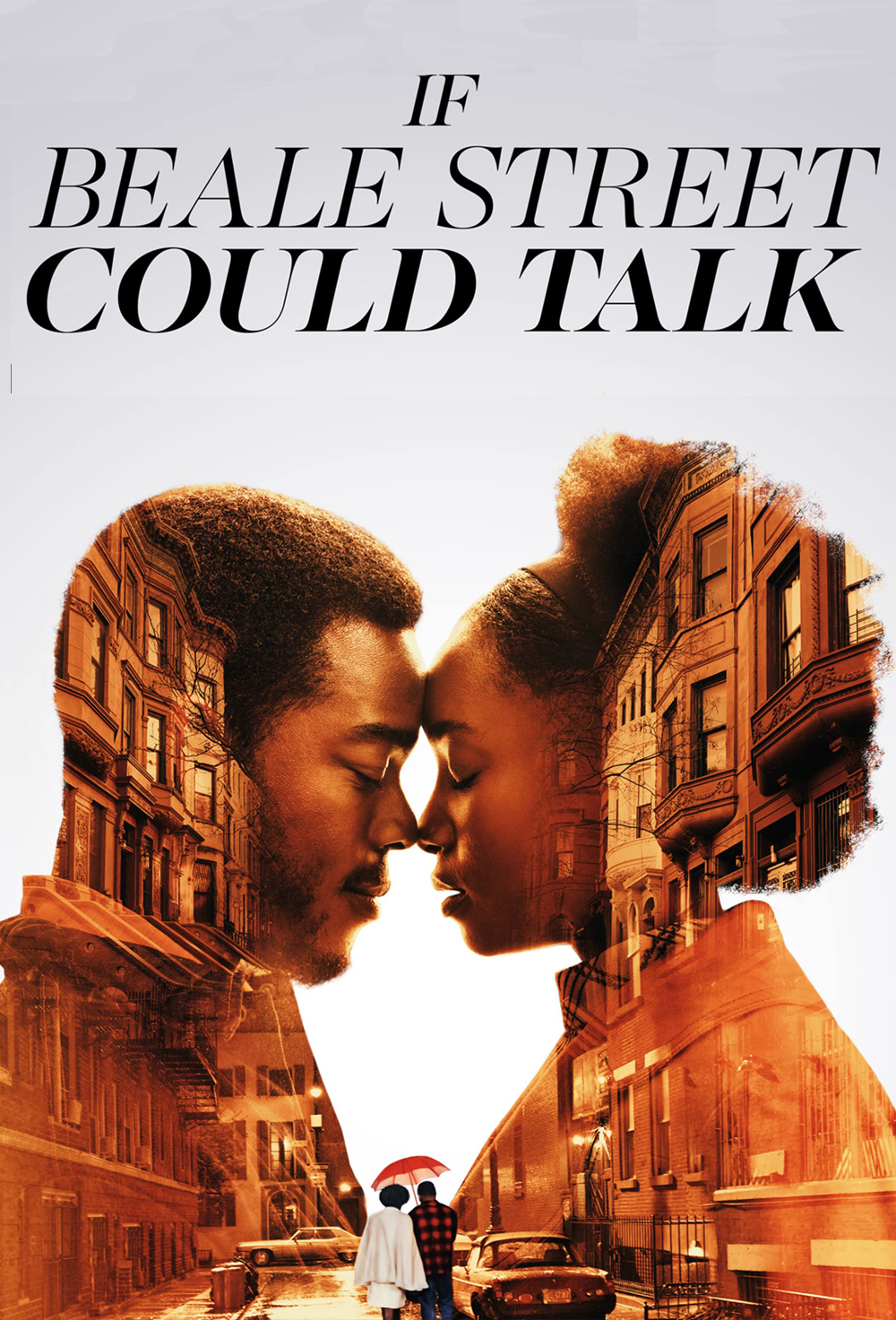
AVAILABLE TO WATCH:
NETFLIX
AMAZON PRIME
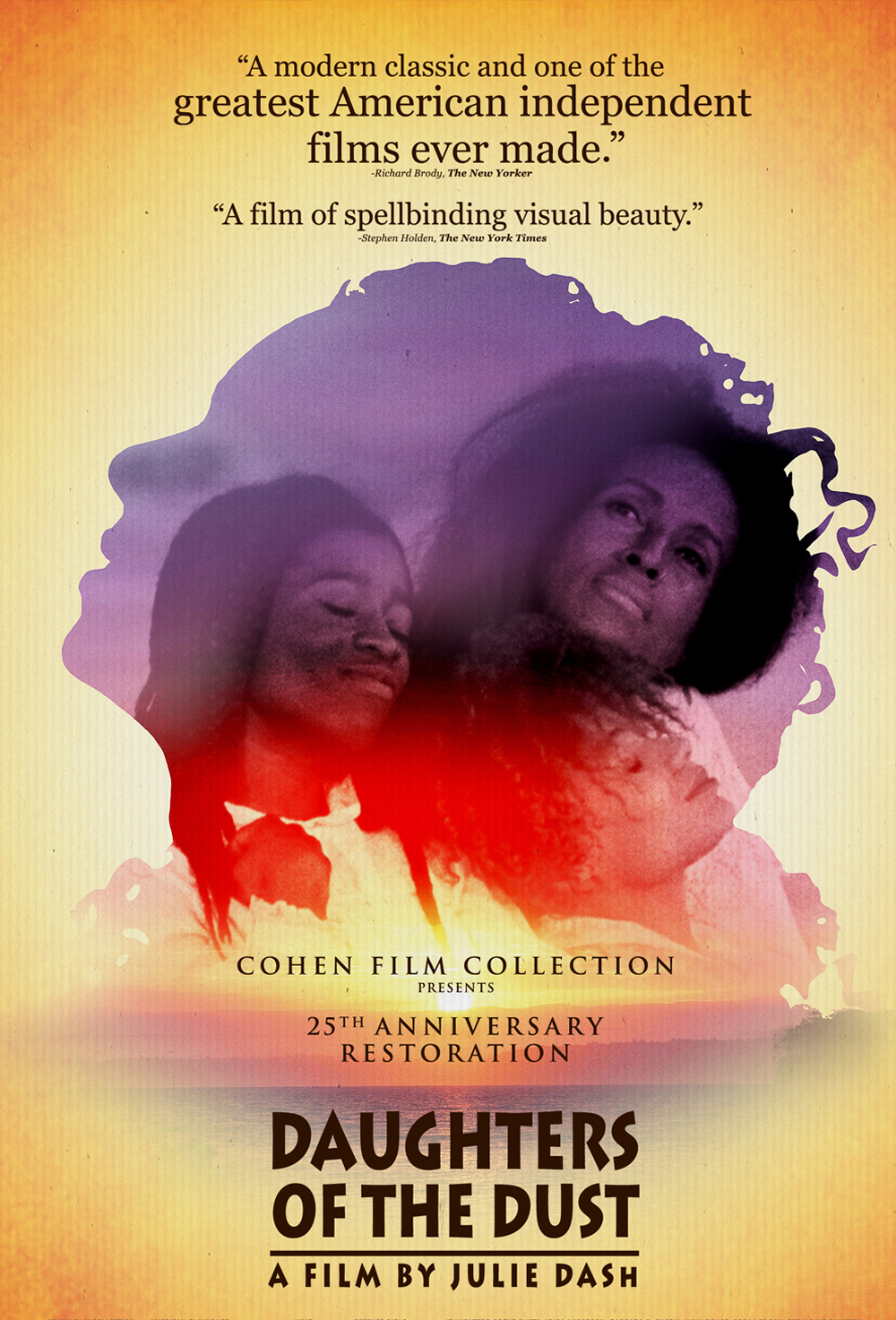
AVAILABLE TO WATCH:
APPLE TV
AMAZON PRIME
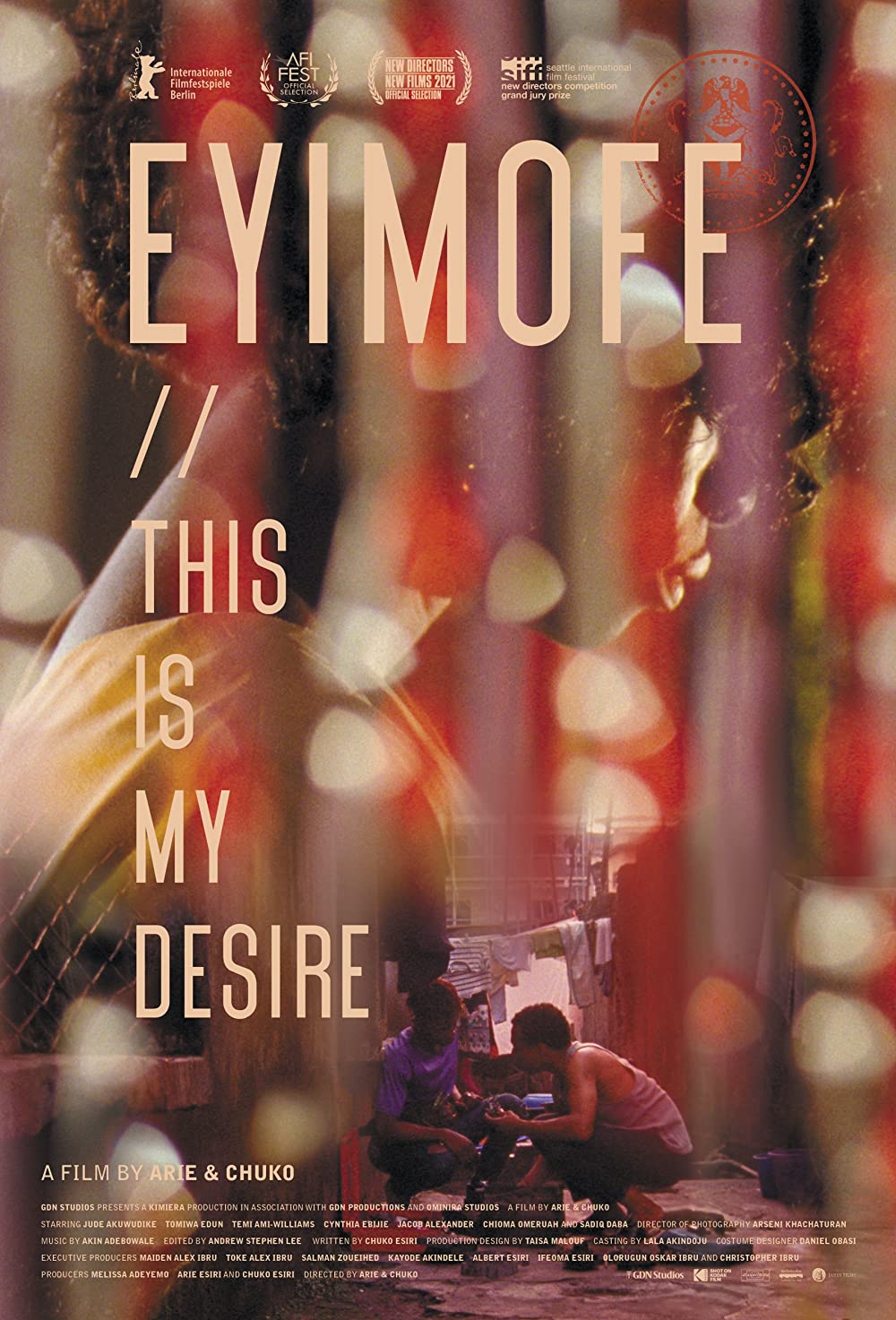
AVAILABLE TO WATCH:
HBO MAX
– Osinachi Ibe
February 4, 2023
You can learn more about Osinachi and her work at www.osinachiibe.com, you can also find her on Instagram @osinachiibe.
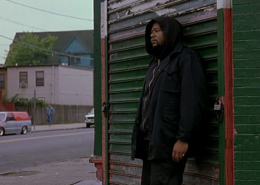 https://www.cafilm.org/wp-content/uploads/2023/02/essay04_post.png
315
560
1_cafilm@org-94901
https://www.cafilm.org/wp-content/uploads/2022/12/cafilm2023_web_home_002.png
1_cafilm@org-949012023-02-26 18:03:532023-02-27 14:39:07Benjamin Mulholland Reflects on Black Creativity in Cinema
https://www.cafilm.org/wp-content/uploads/2023/02/essay04_post.png
315
560
1_cafilm@org-94901
https://www.cafilm.org/wp-content/uploads/2022/12/cafilm2023_web_home_002.png
1_cafilm@org-949012023-02-26 18:03:532023-02-27 14:39:07Benjamin Mulholland Reflects on Black Creativity in Cinema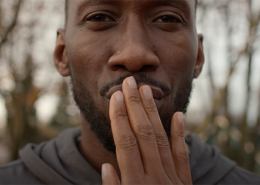 https://www.cafilm.org/wp-content/uploads/2023/02/essay03_post.png
315
560
1_cafilm@org-94901
https://www.cafilm.org/wp-content/uploads/2022/12/cafilm2023_web_home_002.png
1_cafilm@org-949012023-02-23 19:44:552023-02-27 10:24:09Xavier Rernard Cunningham Reflects on Black Creativity in Cinema
https://www.cafilm.org/wp-content/uploads/2023/02/essay03_post.png
315
560
1_cafilm@org-94901
https://www.cafilm.org/wp-content/uploads/2022/12/cafilm2023_web_home_002.png
1_cafilm@org-949012023-02-23 19:44:552023-02-27 10:24:09Xavier Rernard Cunningham Reflects on Black Creativity in Cinema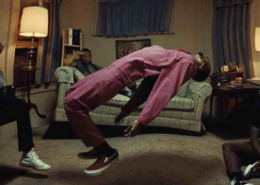 https://www.cafilm.org/wp-content/uploads/2023/02/dontgotellin_still.png
300
600
1_cafilm@org-94901
https://www.cafilm.org/wp-content/uploads/2022/12/cafilm2023_web_home_002.png
1_cafilm@org-949012023-02-16 15:35:192023-02-27 10:35:24PROGRAMMERS’ PICKS: BLACK HISTORY MONTH 2023
https://www.cafilm.org/wp-content/uploads/2023/02/dontgotellin_still.png
300
600
1_cafilm@org-94901
https://www.cafilm.org/wp-content/uploads/2022/12/cafilm2023_web_home_002.png
1_cafilm@org-949012023-02-16 15:35:192023-02-27 10:35:24PROGRAMMERS’ PICKS: BLACK HISTORY MONTH 2023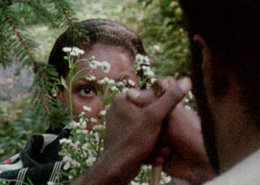 https://www.cafilm.org/wp-content/uploads/2023/02/essay02_post.png
315
560
1_cafilm@org-94901
https://www.cafilm.org/wp-content/uploads/2022/12/cafilm2023_web_home_002.png
1_cafilm@org-949012023-02-15 11:25:422023-02-27 10:33:24Celia Peters Reflects on Black Creativity in Cinema
https://www.cafilm.org/wp-content/uploads/2023/02/essay02_post.png
315
560
1_cafilm@org-94901
https://www.cafilm.org/wp-content/uploads/2022/12/cafilm2023_web_home_002.png
1_cafilm@org-949012023-02-15 11:25:422023-02-27 10:33:24Celia Peters Reflects on Black Creativity in Cinema https://www.cafilm.org/wp-content/uploads/2023/02/osinachi_reflects_post.png
315
560
1_cafilm@org-94901
https://www.cafilm.org/wp-content/uploads/2022/12/cafilm2023_web_home_002.png
1_cafilm@org-949012023-02-07 17:34:122023-02-27 10:23:56Osinachi Ibe Reflects on Black Creativity in Cinema
https://www.cafilm.org/wp-content/uploads/2023/02/osinachi_reflects_post.png
315
560
1_cafilm@org-94901
https://www.cafilm.org/wp-content/uploads/2022/12/cafilm2023_web_home_002.png
1_cafilm@org-949012023-02-07 17:34:122023-02-27 10:23:56Osinachi Ibe Reflects on Black Creativity in Cinema https://www.cafilm.org/wp-content/uploads/2021/04/minari_csend-2.jpg
1080
1920
1_cafilm@org-94901
https://www.cafilm.org/wp-content/uploads/2022/12/cafilm2023_web_home_002.png
1_cafilm@org-949012021-04-12 16:20:572021-04-13 16:48:56ON MINARI
https://www.cafilm.org/wp-content/uploads/2021/04/minari_csend-2.jpg
1080
1920
1_cafilm@org-94901
https://www.cafilm.org/wp-content/uploads/2022/12/cafilm2023_web_home_002.png
1_cafilm@org-949012021-04-12 16:20:572021-04-13 16:48:56ON MINARI https://www.cafilm.org/wp-content/uploads/2021/01/oilycakes_post3.png
315
560
1_cafilm@org-94901
https://www.cafilm.org/wp-content/uploads/2022/12/cafilm2023_web_home_002.png
1_cafilm@org-949012021-01-28 09:51:442021-04-12 16:31:26FOOD AND FILM: FIRST COW AND OILY CAKES
https://www.cafilm.org/wp-content/uploads/2021/01/oilycakes_post3.png
315
560
1_cafilm@org-94901
https://www.cafilm.org/wp-content/uploads/2022/12/cafilm2023_web_home_002.png
1_cafilm@org-949012021-01-28 09:51:442021-04-12 16:31:26FOOD AND FILM: FIRST COW AND OILY CAKES https://www.cafilm.org/wp-content/uploads/2020/11/milk_walk_blog.png
315
560
1_cafilm@org-94901
https://www.cafilm.org/wp-content/uploads/2022/12/cafilm2023_web_home_002.png
1_cafilm@org-949012020-11-24 11:13:452025-06-25 07:44:08STERLING WALKS: MILK
https://www.cafilm.org/wp-content/uploads/2020/11/milk_walk_blog.png
315
560
1_cafilm@org-94901
https://www.cafilm.org/wp-content/uploads/2022/12/cafilm2023_web_home_002.png
1_cafilm@org-949012020-11-24 11:13:452025-06-25 07:44:08STERLING WALKS: MILK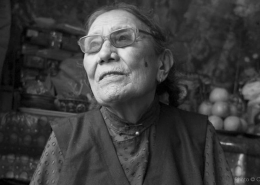 https://www.cafilm.org/wp-content/uploads/2020/11/amaadhe_post.png
630
1120
1_cafilm@org-94901
https://www.cafilm.org/wp-content/uploads/2022/12/cafilm2023_web_home_002.png
1_cafilm@org-949012020-11-24 11:11:552020-11-24 11:13:27THANKSGIVING: MEETINGS WITH REMARKABLE ONES
https://www.cafilm.org/wp-content/uploads/2020/11/amaadhe_post.png
630
1120
1_cafilm@org-94901
https://www.cafilm.org/wp-content/uploads/2022/12/cafilm2023_web_home_002.png
1_cafilm@org-949012020-11-24 11:11:552020-11-24 11:13:27THANKSGIVING: MEETINGS WITH REMARKABLE ONES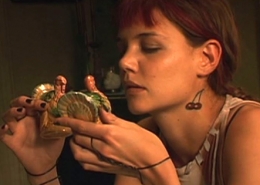 https://www.cafilm.org/wp-content/uploads/2020/11/selects_thanksgiving_post.jpg
315
560
1_cafilm@org-94901
https://www.cafilm.org/wp-content/uploads/2022/12/cafilm2023_web_home_002.png
1_cafilm@org-949012020-11-24 11:11:252020-11-24 11:11:26CFI SELECTS: FILMS TO FEAST ON!
https://www.cafilm.org/wp-content/uploads/2020/11/selects_thanksgiving_post.jpg
315
560
1_cafilm@org-94901
https://www.cafilm.org/wp-content/uploads/2022/12/cafilm2023_web_home_002.png
1_cafilm@org-949012020-11-24 11:11:252020-11-24 11:11:26CFI SELECTS: FILMS TO FEAST ON!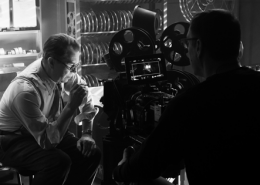 https://www.cafilm.org/wp-content/uploads/2020/11/mank_post.png
315
560
1_cafilm@org-94901
https://www.cafilm.org/wp-content/uploads/2022/12/cafilm2023_web_home_002.png
1_cafilm@org-949012020-11-12 19:19:262020-11-13 07:48:37BLACK AND WHITE FOREVER!
https://www.cafilm.org/wp-content/uploads/2020/11/mank_post.png
315
560
1_cafilm@org-94901
https://www.cafilm.org/wp-content/uploads/2022/12/cafilm2023_web_home_002.png
1_cafilm@org-949012020-11-12 19:19:262020-11-13 07:48:37BLACK AND WHITE FOREVER!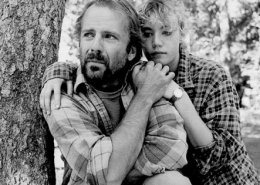 https://www.cafilm.org/wp-content/uploads/2020/11/selects_veterans_post.png
315
560
1_cafilm@org-94901
https://www.cafilm.org/wp-content/uploads/2022/12/cafilm2023_web_home_002.png
1_cafilm@org-949012020-11-12 19:11:212020-11-13 11:22:55CFI SELECTS: VETERANS
https://www.cafilm.org/wp-content/uploads/2020/11/selects_veterans_post.png
315
560
1_cafilm@org-94901
https://www.cafilm.org/wp-content/uploads/2022/12/cafilm2023_web_home_002.png
1_cafilm@org-949012020-11-12 19:11:212020-11-13 11:22:55CFI SELECTS: VETERANS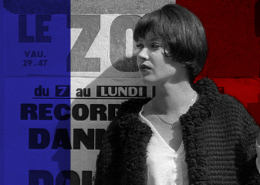 https://www.cafilm.org/wp-content/uploads/2020/11/fremchnewwave_post.png
315
560
1_cafilm@org-94901
https://www.cafilm.org/wp-content/uploads/2022/12/cafilm2023_web_home_002.png
1_cafilm@org-949012020-11-12 12:56:492024-05-11 09:13:16FRENCH NEW WAVE
https://www.cafilm.org/wp-content/uploads/2020/11/fremchnewwave_post.png
315
560
1_cafilm@org-94901
https://www.cafilm.org/wp-content/uploads/2022/12/cafilm2023_web_home_002.png
1_cafilm@org-949012020-11-12 12:56:492024-05-11 09:13:16FRENCH NEW WAVE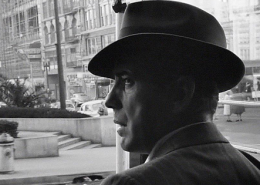 https://www.cafilm.org/wp-content/uploads/2020/11/bogey_post_01.png
315
560
1_cafilm@org-94901
https://www.cafilm.org/wp-content/uploads/2022/12/cafilm2023_web_home_002.png
1_cafilm@org-949012020-11-12 12:55:472020-11-16 13:20:21STERLING WALKS: DARK PASSAGE + MALTESE FALCON
https://www.cafilm.org/wp-content/uploads/2020/11/bogey_post_01.png
315
560
1_cafilm@org-94901
https://www.cafilm.org/wp-content/uploads/2022/12/cafilm2023_web_home_002.png
1_cafilm@org-949012020-11-12 12:55:472020-11-16 13:20:21STERLING WALKS: DARK PASSAGE + MALTESE FALCON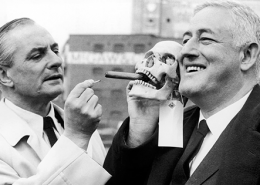 https://www.cafilm.org/wp-content/uploads/2020/10/castle_post2.png
315
560
1_cafilm@org-94901
https://www.cafilm.org/wp-content/uploads/2022/12/cafilm2023_web_home_002.png
1_cafilm@org-949012020-10-29 13:08:082020-10-30 19:37:47WILLIAM CASTLE: MASTER SHOWMAN OF THE MACABRE
https://www.cafilm.org/wp-content/uploads/2020/10/castle_post2.png
315
560
1_cafilm@org-94901
https://www.cafilm.org/wp-content/uploads/2022/12/cafilm2023_web_home_002.png
1_cafilm@org-949012020-10-29 13:08:082020-10-30 19:37:47WILLIAM CASTLE: MASTER SHOWMAN OF THE MACABRE https://www.cafilm.org/wp-content/uploads/2020/10/selects_halloween_post.png
315
560
1_cafilm@org-94901
https://www.cafilm.org/wp-content/uploads/2022/12/cafilm2023_web_home_002.png
1_cafilm@org-949012020-10-29 13:07:462020-10-29 13:07:47HALLOWEEN SELECTS
https://www.cafilm.org/wp-content/uploads/2020/10/selects_halloween_post.png
315
560
1_cafilm@org-94901
https://www.cafilm.org/wp-content/uploads/2022/12/cafilm2023_web_home_002.png
1_cafilm@org-949012020-10-29 13:07:462020-10-29 13:07:47HALLOWEEN SELECTS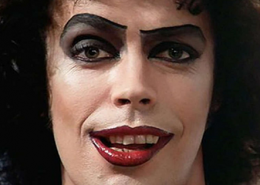 https://www.cafilm.org/wp-content/uploads/2020/10/curry_post_02.png
315
560
1_cafilm@org-94901
https://www.cafilm.org/wp-content/uploads/2022/12/cafilm2023_web_home_002.png
1_cafilm@org-949012020-10-29 13:07:212020-10-29 13:07:21TIM CURRY FEST
https://www.cafilm.org/wp-content/uploads/2020/10/curry_post_02.png
315
560
1_cafilm@org-94901
https://www.cafilm.org/wp-content/uploads/2022/12/cafilm2023_web_home_002.png
1_cafilm@org-949012020-10-29 13:07:212020-10-29 13:07:21TIM CURRY FEST https://www.cafilm.org/wp-content/uploads/2020/10/playingforkeeps_post.png
315
560
1_cafilm@org-94901
https://www.cafilm.org/wp-content/uploads/2022/12/cafilm2023_web_home_002.png
1_cafilm@org-949012020-10-01 23:03:592020-10-13 19:35:12MVFF43 MEMBER SCREENING
https://www.cafilm.org/wp-content/uploads/2020/10/playingforkeeps_post.png
315
560
1_cafilm@org-94901
https://www.cafilm.org/wp-content/uploads/2022/12/cafilm2023_web_home_002.png
1_cafilm@org-949012020-10-01 23:03:592020-10-13 19:35:12MVFF43 MEMBER SCREENING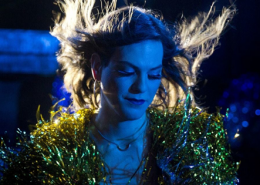 https://www.cafilm.org/wp-content/uploads/2020/09/selects18_post2.png
315
560
1_cafilm@org-94901
https://www.cafilm.org/wp-content/uploads/2022/12/cafilm2023_web_home_002.png
1_cafilm@org-949012020-09-22 10:47:532020-10-25 12:03:12CFI SELECTS VIVA EL CINE
https://www.cafilm.org/wp-content/uploads/2020/09/selects18_post2.png
315
560
1_cafilm@org-94901
https://www.cafilm.org/wp-content/uploads/2022/12/cafilm2023_web_home_002.png
1_cafilm@org-949012020-09-22 10:47:532020-10-25 12:03:12CFI SELECTS VIVA EL CINE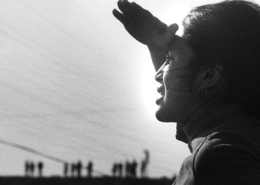 https://www.cafilm.org/wp-content/uploads/2020/09/selects17_post2.png
315
560
1_cafilm@org-94901
https://www.cafilm.org/wp-content/uploads/2022/12/cafilm2023_web_home_002.png
1_cafilm@org-949012020-09-08 16:42:322020-09-08 16:42:33CFI SELECTS: ACTIVE CINEMA
https://www.cafilm.org/wp-content/uploads/2020/09/selects17_post2.png
315
560
1_cafilm@org-94901
https://www.cafilm.org/wp-content/uploads/2022/12/cafilm2023_web_home_002.png
1_cafilm@org-949012020-09-08 16:42:322020-09-08 16:42:33CFI SELECTS: ACTIVE CINEMA https://www.cafilm.org/wp-content/uploads/2020/07/selects_backtoschool_post.jpg
315
560
1_cafilm@org-94901
https://www.cafilm.org/wp-content/uploads/2022/12/cafilm2023_web_home_002.png
1_cafilm@org-949012020-08-27 12:30:112020-08-27 12:30:19CFI SELECTS: BACK TO SCHOOL
https://www.cafilm.org/wp-content/uploads/2020/07/selects_backtoschool_post.jpg
315
560
1_cafilm@org-94901
https://www.cafilm.org/wp-content/uploads/2022/12/cafilm2023_web_home_002.png
1_cafilm@org-949012020-08-27 12:30:112020-08-27 12:30:19CFI SELECTS: BACK TO SCHOOL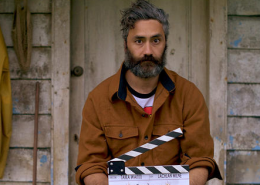 https://www.cafilm.org/wp-content/uploads/2020/08/selects_11_post_taika2.png
315
560
1_cafilm@org-94901
https://www.cafilm.org/wp-content/uploads/2022/12/cafilm2023_web_home_002.png
1_cafilm@org-949012020-08-13 08:36:122020-08-13 08:38:13CFI SELECTS TAIKA-THON
https://www.cafilm.org/wp-content/uploads/2020/08/selects_11_post_taika2.png
315
560
1_cafilm@org-94901
https://www.cafilm.org/wp-content/uploads/2022/12/cafilm2023_web_home_002.png
1_cafilm@org-949012020-08-13 08:36:122020-08-13 08:38:13CFI SELECTS TAIKA-THON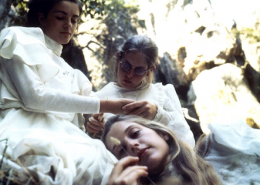 https://www.cafilm.org/wp-content/uploads/2020/08/hangingrock2_post.png
315
560
1_cafilm@org-94901
https://www.cafilm.org/wp-content/uploads/2022/12/cafilm2023_web_home_002.png
1_cafilm@org-949012020-08-13 08:32:432020-08-13 08:35:04PICNIC AT HANGING ROCK
https://www.cafilm.org/wp-content/uploads/2020/08/hangingrock2_post.png
315
560
1_cafilm@org-94901
https://www.cafilm.org/wp-content/uploads/2022/12/cafilm2023_web_home_002.png
1_cafilm@org-949012020-08-13 08:32:432020-08-13 08:35:04PICNIC AT HANGING ROCK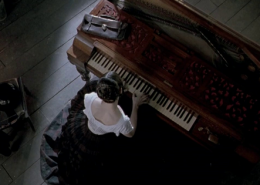 https://www.cafilm.org/wp-content/uploads/2020/08/piano_ladyfingers_post2.png
315
560
1_cafilm@org-94901
https://www.cafilm.org/wp-content/uploads/2022/12/cafilm2023_web_home_002.png
1_cafilm@org-949012020-08-11 15:29:272020-08-13 08:39:02THE PIANO & LADYFINGERS
https://www.cafilm.org/wp-content/uploads/2020/08/piano_ladyfingers_post2.png
315
560
1_cafilm@org-94901
https://www.cafilm.org/wp-content/uploads/2022/12/cafilm2023_web_home_002.png
1_cafilm@org-949012020-08-11 15:29:272020-08-13 08:39:02THE PIANO & LADYFINGERS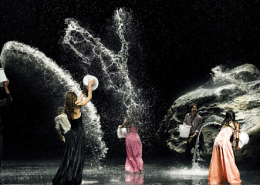 https://www.cafilm.org/wp-content/uploads/2020/05/selects_10_post_pena.png
315
560
1_cafilm@org-94901
https://www.cafilm.org/wp-content/uploads/2022/12/cafilm2023_web_home_002.png
1_cafilm@org-949012020-07-30 13:52:562020-07-30 13:52:57CFI SELECTS: LET’S DANCE
https://www.cafilm.org/wp-content/uploads/2020/05/selects_10_post_pena.png
315
560
1_cafilm@org-94901
https://www.cafilm.org/wp-content/uploads/2022/12/cafilm2023_web_home_002.png
1_cafilm@org-949012020-07-30 13:52:562020-07-30 13:52:57CFI SELECTS: LET’S DANCE https://www.cafilm.org/wp-content/uploads/2020/07/viewtoakill_walk_post.png
315
560
1_cafilm@org-94901
https://www.cafilm.org/wp-content/uploads/2022/12/cafilm2023_web_home_002.png
1_cafilm@org-949012020-07-30 13:52:392020-07-30 13:52:40A VIEW TO A KILL MOVIE WALK
https://www.cafilm.org/wp-content/uploads/2020/07/viewtoakill_walk_post.png
315
560
1_cafilm@org-94901
https://www.cafilm.org/wp-content/uploads/2022/12/cafilm2023_web_home_002.png
1_cafilm@org-949012020-07-30 13:52:392020-07-30 13:52:40A VIEW TO A KILL MOVIE WALK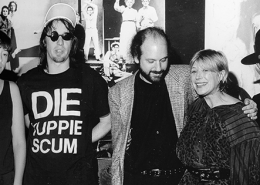 https://www.cafilm.org/wp-content/uploads/2020/07/wilner_post.png
315
560
1_cafilm@org-94901
https://www.cafilm.org/wp-content/uploads/2022/12/cafilm2023_web_home_002.png
1_cafilm@org-949012020-07-30 13:52:182020-07-30 14:33:12REMEMBERING HAL WILLNER
https://www.cafilm.org/wp-content/uploads/2020/07/wilner_post.png
315
560
1_cafilm@org-94901
https://www.cafilm.org/wp-content/uploads/2022/12/cafilm2023_web_home_002.png
1_cafilm@org-949012020-07-30 13:52:182020-07-30 14:33:12REMEMBERING HAL WILLNER https://www.cafilm.org/wp-content/uploads/2020/07/selects15_post2.png
315
560
1_cafilm@org-94901
https://www.cafilm.org/wp-content/uploads/2022/12/cafilm2023_web_home_002.png
1_cafilm@org-949012020-07-16 14:28:072020-07-16 14:28:08CFI SELECTS: A ROOM OF ONE’S OWN
https://www.cafilm.org/wp-content/uploads/2020/07/selects15_post2.png
315
560
1_cafilm@org-94901
https://www.cafilm.org/wp-content/uploads/2022/12/cafilm2023_web_home_002.png
1_cafilm@org-949012020-07-16 14:28:072020-07-16 14:28:08CFI SELECTS: A ROOM OF ONE’S OWN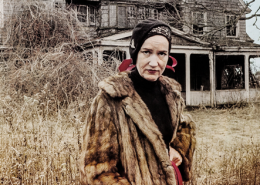 https://www.cafilm.org/wp-content/uploads/2020/07/greygardenscocktailhour_post.png
315
560
1_cafilm@org-94901
https://www.cafilm.org/wp-content/uploads/2022/12/cafilm2023_web_home_002.png
1_cafilm@org-949012020-07-16 10:14:382020-07-17 07:20:31GREY GARDENS SIP COCKTAIL HOUR
https://www.cafilm.org/wp-content/uploads/2020/07/greygardenscocktailhour_post.png
315
560
1_cafilm@org-94901
https://www.cafilm.org/wp-content/uploads/2022/12/cafilm2023_web_home_002.png
1_cafilm@org-949012020-07-16 10:14:382020-07-17 07:20:31GREY GARDENS SIP COCKTAIL HOUR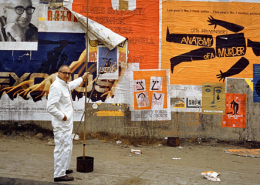 https://www.cafilm.org/wp-content/uploads/2020/06/bass_post.png
315
560
1_cafilm@org-94901
https://www.cafilm.org/wp-content/uploads/2022/12/cafilm2023_web_home_002.png
1_cafilm@org-949012020-07-02 08:16:452024-06-06 20:57:52THE ART OF SAUL BASS
https://www.cafilm.org/wp-content/uploads/2020/06/bass_post.png
315
560
1_cafilm@org-94901
https://www.cafilm.org/wp-content/uploads/2022/12/cafilm2023_web_home_002.png
1_cafilm@org-949012020-07-02 08:16:452024-06-06 20:57:52THE ART OF SAUL BASS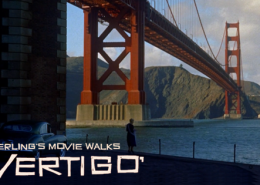 https://www.cafilm.org/wp-content/uploads/2020/06/vertigo_walk_post.png
315
560
1_cafilm@org-94901
https://www.cafilm.org/wp-content/uploads/2022/12/cafilm2023_web_home_002.png
1_cafilm@org-949012020-07-02 08:07:212020-12-06 14:08:05VERTIGO WALK
https://www.cafilm.org/wp-content/uploads/2020/06/vertigo_walk_post.png
315
560
1_cafilm@org-94901
https://www.cafilm.org/wp-content/uploads/2022/12/cafilm2023_web_home_002.png
1_cafilm@org-949012020-07-02 08:07:212020-12-06 14:08:05VERTIGO WALK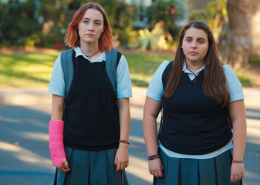 https://www.cafilm.org/wp-content/uploads/2020/06/selects14_post.png
315
560
1_cafilm@org-94901
https://www.cafilm.org/wp-content/uploads/2022/12/cafilm2023_web_home_002.png
1_cafilm@org-949012020-06-30 17:42:452020-07-13 09:42:55CFI SELECTS: INDEPENDENCE
https://www.cafilm.org/wp-content/uploads/2020/06/selects14_post.png
315
560
1_cafilm@org-94901
https://www.cafilm.org/wp-content/uploads/2022/12/cafilm2023_web_home_002.png
1_cafilm@org-949012020-06-30 17:42:452020-07-13 09:42:55CFI SELECTS: INDEPENDENCE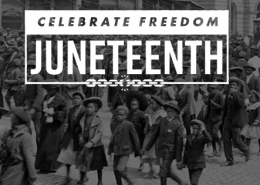 https://www.cafilm.org/wp-content/uploads/2020/06/juneteenth_post.png
315
560
1_cafilm@org-94901
https://www.cafilm.org/wp-content/uploads/2022/12/cafilm2023_web_home_002.png
1_cafilm@org-949012020-06-18 17:43:242020-06-19 06:48:59JUNETEENTH
https://www.cafilm.org/wp-content/uploads/2020/06/juneteenth_post.png
315
560
1_cafilm@org-94901
https://www.cafilm.org/wp-content/uploads/2022/12/cafilm2023_web_home_002.png
1_cafilm@org-949012020-06-18 17:43:242020-06-19 06:48:59JUNETEENTH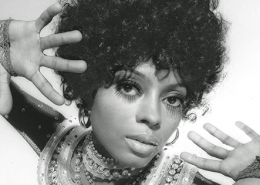 https://www.cafilm.org/wp-content/uploads/2020/06/dianaross_cookies_post.png
315
560
1_cafilm@org-94901
https://www.cafilm.org/wp-content/uploads/2022/12/cafilm2023_web_home_002.png
1_cafilm@org-949012020-06-18 13:14:112020-06-18 17:40:19DIANA ROSS’ FAVORITE COOKIES & MAHOGANY
https://www.cafilm.org/wp-content/uploads/2020/06/dianaross_cookies_post.png
315
560
1_cafilm@org-94901
https://www.cafilm.org/wp-content/uploads/2022/12/cafilm2023_web_home_002.png
1_cafilm@org-949012020-06-18 13:14:112020-06-18 17:40:19DIANA ROSS’ FAVORITE COOKIES & MAHOGANY https://www.cafilm.org/wp-content/uploads/2020/06/selects13_BlackLGBTQ_post.png
315
560
1_cafilm@org-94901
https://www.cafilm.org/wp-content/uploads/2022/12/cafilm2023_web_home_002.png
1_cafilm@org-949012020-06-16 13:59:132020-06-17 19:58:43SELECTS: #BLACKSTORIESMATTER
https://www.cafilm.org/wp-content/uploads/2020/06/selects13_BlackLGBTQ_post.png
315
560
1_cafilm@org-94901
https://www.cafilm.org/wp-content/uploads/2022/12/cafilm2023_web_home_002.png
1_cafilm@org-949012020-06-16 13:59:132020-06-17 19:58:43SELECTS: #BLACKSTORIESMATTER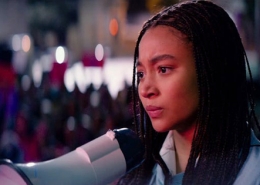 https://www.cafilm.org/wp-content/uploads/2020/06/selects12_post.jpg
315
560
1_cafilm@org-94901
https://www.cafilm.org/wp-content/uploads/2022/12/cafilm2023_web_home_002.png
1_cafilm@org-949012020-06-05 07:33:582020-06-17 19:58:26SELECTS: WHAT IS YOUR SOMETHING?
https://www.cafilm.org/wp-content/uploads/2020/06/selects12_post.jpg
315
560
1_cafilm@org-94901
https://www.cafilm.org/wp-content/uploads/2022/12/cafilm2023_web_home_002.png
1_cafilm@org-949012020-06-05 07:33:582020-06-17 19:58:26SELECTS: WHAT IS YOUR SOMETHING?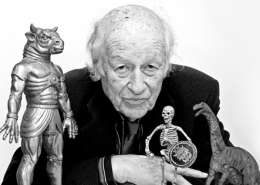 https://www.cafilm.org/wp-content/uploads/2020/05/harryhausen_post-1.png
315
560
1_cafilm@org-94901
https://www.cafilm.org/wp-content/uploads/2022/12/cafilm2023_web_home_002.png
1_cafilm@org-949012020-06-04 15:01:112020-06-17 20:04:44RAY HARRYHAUSEN: MASTER OF CINEMA MAGIC
https://www.cafilm.org/wp-content/uploads/2020/05/harryhausen_post-1.png
315
560
1_cafilm@org-94901
https://www.cafilm.org/wp-content/uploads/2022/12/cafilm2023_web_home_002.png
1_cafilm@org-949012020-06-04 15:01:112020-06-17 20:04:44RAY HARRYHAUSEN: MASTER OF CINEMA MAGIC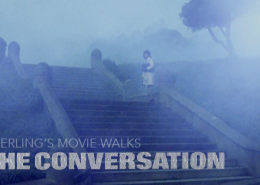 https://www.cafilm.org/wp-content/uploads/2020/05/conversation_post.png
315
560
1_cafilm@org-94901
https://www.cafilm.org/wp-content/uploads/2022/12/cafilm2023_web_home_002.png
1_cafilm@org-949012020-05-28 09:40:292021-06-15 13:18:18CONVERSATION WALK
https://www.cafilm.org/wp-content/uploads/2020/05/conversation_post.png
315
560
1_cafilm@org-94901
https://www.cafilm.org/wp-content/uploads/2022/12/cafilm2023_web_home_002.png
1_cafilm@org-949012020-05-28 09:40:292021-06-15 13:18:18CONVERSATION WALK https://www.cafilm.org/wp-content/uploads/2020/05/bettedavis_post2.png
315
560
1_cafilm@org-94901
https://www.cafilm.org/wp-content/uploads/2022/12/cafilm2023_web_home_002.png
1_cafilm@org-949012020-05-21 15:57:302020-05-22 13:16:21BETTE DAVIS EYES
https://www.cafilm.org/wp-content/uploads/2020/05/bettedavis_post2.png
315
560
1_cafilm@org-94901
https://www.cafilm.org/wp-content/uploads/2022/12/cafilm2023_web_home_002.png
1_cafilm@org-949012020-05-21 15:57:302020-05-22 13:16:21BETTE DAVIS EYES https://www.cafilm.org/wp-content/uploads/2020/05/selects_09_post-2.png
315
560
1_cafilm@org-94901
https://www.cafilm.org/wp-content/uploads/2022/12/cafilm2023_web_home_002.png
1_cafilm@org-949012020-05-21 12:30:542020-05-21 12:33:17CFI SELECTS: JOURNEYS
https://www.cafilm.org/wp-content/uploads/2020/05/selects_09_post-2.png
315
560
1_cafilm@org-94901
https://www.cafilm.org/wp-content/uploads/2022/12/cafilm2023_web_home_002.png
1_cafilm@org-949012020-05-21 12:30:542020-05-21 12:33:17CFI SELECTS: JOURNEYS https://www.cafilm.org/wp-content/uploads/2020/05/selects_09_post.png
315
560
1_cafilm@org-94901
https://www.cafilm.org/wp-content/uploads/2022/12/cafilm2023_web_home_002.png
1_cafilm@org-949012020-05-14 11:06:202020-05-21 12:15:53CFI SELECTS: INSPIRATIONAL CHALLENGERS
https://www.cafilm.org/wp-content/uploads/2020/05/selects_09_post.png
315
560
1_cafilm@org-94901
https://www.cafilm.org/wp-content/uploads/2022/12/cafilm2023_web_home_002.png
1_cafilm@org-949012020-05-14 11:06:202020-05-21 12:15:53CFI SELECTS: INSPIRATIONAL CHALLENGERS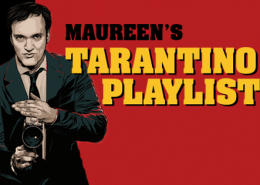 https://www.cafilm.org/wp-content/uploads/2020/05/tarantino_playlist_post2.png
315
560
1_cafilm@org-94901
https://www.cafilm.org/wp-content/uploads/2022/12/cafilm2023_web_home_002.png
1_cafilm@org-949012020-05-13 16:06:532020-05-17 10:51:15TARANTINO PLAYLIST
https://www.cafilm.org/wp-content/uploads/2020/05/tarantino_playlist_post2.png
315
560
1_cafilm@org-94901
https://www.cafilm.org/wp-content/uploads/2022/12/cafilm2023_web_home_002.png
1_cafilm@org-949012020-05-13 16:06:532020-05-17 10:51:15TARANTINO PLAYLIST https://www.cafilm.org/wp-content/uploads/2020/04/kate_brownies_post2.png
315
560
1_cafilm@org-94901
https://www.cafilm.org/wp-content/uploads/2022/12/cafilm2023_web_home_002.png
1_cafilm@org-949012020-05-08 13:22:592020-05-21 14:00:56MAKE KATHARINE HEPBURN’S BROWNIES & WATCH STAGE DOOR
https://www.cafilm.org/wp-content/uploads/2020/04/kate_brownies_post2.png
315
560
1_cafilm@org-94901
https://www.cafilm.org/wp-content/uploads/2022/12/cafilm2023_web_home_002.png
1_cafilm@org-949012020-05-08 13:22:592020-05-21 14:00:56MAKE KATHARINE HEPBURN’S BROWNIES & WATCH STAGE DOOR https://www.cafilm.org/wp-content/uploads/2019/12/cfiedatmvff42_post.jpg
315
560
1_cafilm@org-94901
https://www.cafilm.org/wp-content/uploads/2022/12/cafilm2023_web_home_002.png
1_cafilm@org-949012019-12-16 12:15:462019-12-17 14:03:59CFI EDUCATION AT MVFF42
https://www.cafilm.org/wp-content/uploads/2019/12/cfiedatmvff42_post.jpg
315
560
1_cafilm@org-94901
https://www.cafilm.org/wp-content/uploads/2022/12/cafilm2023_web_home_002.png
1_cafilm@org-949012019-12-16 12:15:462019-12-17 14:03:59CFI EDUCATION AT MVFF42 https://www.cafilm.org/wp-content/uploads/2019/12/memberscreenings2019@markisz_post.jpg
315
560
1_cafilm@org-94901
https://www.cafilm.org/wp-content/uploads/2022/12/cafilm2023_web_home_002.png
1_cafilm@org-949012019-12-13 09:49:162019-12-17 13:28:25A YEAR OF FANTASTIC MEMBER SCREENINGS !
https://www.cafilm.org/wp-content/uploads/2019/12/memberscreenings2019@markisz_post.jpg
315
560
1_cafilm@org-94901
https://www.cafilm.org/wp-content/uploads/2022/12/cafilm2023_web_home_002.png
1_cafilm@org-949012019-12-13 09:49:162019-12-17 13:28:25A YEAR OF FANTASTIC MEMBER SCREENINGS ! https://www.cafilm.org/wp-content/uploads/2019/12/mtgdirectorsmvff42©romancho_post.jpg
315
560
1_cafilm@org-94901
https://www.cafilm.org/wp-content/uploads/2022/12/cafilm2023_web_home_002.png
1_cafilm@org-949012019-12-11 19:00:292019-12-17 13:26:30MIND THE GAP AT MVFF42
https://www.cafilm.org/wp-content/uploads/2019/12/mtgdirectorsmvff42©romancho_post.jpg
315
560
1_cafilm@org-94901
https://www.cafilm.org/wp-content/uploads/2022/12/cafilm2023_web_home_002.png
1_cafilm@org-949012019-12-11 19:00:292019-12-17 13:26:30MIND THE GAP AT MVFF42 https://www.cafilm.org/wp-content/uploads/2019/06/The-Biggest-Little-Farm_190518_Kirke-Wrench-7756x-1030x687-1.jpg
315
560
1_cafilm@org-94901
https://www.cafilm.org/wp-content/uploads/2022/12/cafilm2023_web_home_002.png
1_cafilm@org-949012019-06-06 15:40:192019-06-07 11:28:14A Bustling Spring Leads Into a Lively Summer at the California Film Institute!
https://www.cafilm.org/wp-content/uploads/2019/06/The-Biggest-Little-Farm_190518_Kirke-Wrench-7756x-1030x687-1.jpg
315
560
1_cafilm@org-94901
https://www.cafilm.org/wp-content/uploads/2022/12/cafilm2023_web_home_002.png
1_cafilm@org-949012019-06-06 15:40:192019-06-07 11:28:14A Bustling Spring Leads Into a Lively Summer at the California Film Institute! https://www.cafilm.org/wp-content/uploads/2019/01/awards2019_agile.jpg
321
570
1_cafilm@org-94901
https://www.cafilm.org/wp-content/uploads/2022/12/cafilm2023_web_home_002.png
1_cafilm@org-949012019-01-28 14:29:282019-02-14 17:24:24Kicking off a New Year at CFI
https://www.cafilm.org/wp-content/uploads/2019/01/awards2019_agile.jpg
321
570
1_cafilm@org-94901
https://www.cafilm.org/wp-content/uploads/2022/12/cafilm2023_web_home_002.png
1_cafilm@org-949012019-01-28 14:29:282019-02-14 17:24:24Kicking off a New Year at CFI https://www.cafilm.org/wp-content/uploads/2018/12/091318_MyPlaceMyStory_byTommyLau_19_blog-1.jpg
334
500
1_cafilm@org-94901
https://www.cafilm.org/wp-content/uploads/2022/12/cafilm2023_web_home_002.png
1_cafilm@org-949012018-12-13 12:39:082018-12-18 16:58:17MY PLACE | MY STORY
https://www.cafilm.org/wp-content/uploads/2018/12/091318_MyPlaceMyStory_byTommyLau_19_blog-1.jpg
334
500
1_cafilm@org-94901
https://www.cafilm.org/wp-content/uploads/2022/12/cafilm2023_web_home_002.png
1_cafilm@org-949012018-12-13 12:39:082018-12-18 16:58:17MY PLACE | MY STORY https://www.cafilm.org/wp-content/uploads/2018/12/teenwellness_featured_post.jpg
315
560
1_cafilm@org-94901
https://www.cafilm.org/wp-content/uploads/2022/12/cafilm2023_web_home_002.png
1_cafilm@org-949012018-12-13 11:54:262018-12-13 12:07:19TEEN WELLNESS FILM SERIES
https://www.cafilm.org/wp-content/uploads/2018/12/teenwellness_featured_post.jpg
315
560
1_cafilm@org-94901
https://www.cafilm.org/wp-content/uploads/2022/12/cafilm2023_web_home_002.png
1_cafilm@org-949012018-12-13 11:54:262018-12-13 12:07:19TEEN WELLNESS FILM SERIES https://www.cafilm.org/wp-content/uploads/2018/12/ryancoogler_damienchazelle©stevedisenhof_featured_post.jpg
315
560
1_cafilm@org-94901
https://www.cafilm.org/wp-content/uploads/2022/12/cafilm2023_web_home_002.png
1_cafilm@org-949012018-12-06 18:47:282018-12-13 11:41:13A Winter of Much Content at California Film Institute
https://www.cafilm.org/wp-content/uploads/2018/12/ryancoogler_damienchazelle©stevedisenhof_featured_post.jpg
315
560
1_cafilm@org-94901
https://www.cafilm.org/wp-content/uploads/2022/12/cafilm2023_web_home_002.png
1_cafilm@org-949012018-12-06 18:47:282018-12-13 11:41:13A Winter of Much Content at California Film Institute https://www.cafilm.org/wp-content/uploads/2018/11/magicalmysterytour_web.jpg
300
472
1_cafilm@org-94901
https://www.cafilm.org/wp-content/uploads/2022/12/cafilm2023_web_home_002.png
1_cafilm@org-949012018-11-08 17:35:152018-11-08 17:46:43Fall Into Upcoming Rafael Programs!
https://www.cafilm.org/wp-content/uploads/2018/11/magicalmysterytour_web.jpg
300
472
1_cafilm@org-94901
https://www.cafilm.org/wp-content/uploads/2022/12/cafilm2023_web_home_002.png
1_cafilm@org-949012018-11-08 17:35:152018-11-08 17:46:43Fall Into Upcoming Rafael Programs!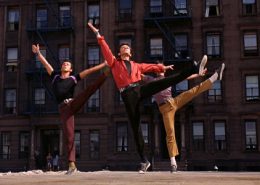 https://www.cafilm.org/wp-content/uploads/2018/07/westsidestory_web.jpg
300
472
1_cafilm@org-94901
https://www.cafilm.org/wp-content/uploads/2022/12/cafilm2023_web_home_002.png
1_cafilm@org-949012018-07-13 12:04:232018-11-22 08:25:53Special Events Coming to the Christopher B. Smith Rafael Film Center!
https://www.cafilm.org/wp-content/uploads/2018/07/westsidestory_web.jpg
300
472
1_cafilm@org-94901
https://www.cafilm.org/wp-content/uploads/2022/12/cafilm2023_web_home_002.png
1_cafilm@org-949012018-07-13 12:04:232018-11-22 08:25:53Special Events Coming to the Christopher B. Smith Rafael Film Center! https://www.cafilm.org/wp-content/uploads/2018/07/eyf2018_post.jpg
315
560
1_cafilm@org-94901
https://www.cafilm.org/wp-content/uploads/2022/12/cafilm2023_web_home_002.png
1_cafilm@org-949012018-07-06 15:20:242018-07-10 11:24:47ENVIRONMENTAL YOUTH FORUM 2018
https://www.cafilm.org/wp-content/uploads/2018/07/eyf2018_post.jpg
315
560
1_cafilm@org-94901
https://www.cafilm.org/wp-content/uploads/2022/12/cafilm2023_web_home_002.png
1_cafilm@org-949012018-07-06 15:20:242018-07-10 11:24:47ENVIRONMENTAL YOUTH FORUM 2018 https://www.cafilm.org/wp-content/uploads/2018/07/docpitch_post.jpg
315
560
1_cafilm@org-94901
https://www.cafilm.org/wp-content/uploads/2022/12/cafilm2023_web_home_002.png
1_cafilm@org-949012018-07-06 14:41:392018-07-10 11:14:11DOCPITCH
https://www.cafilm.org/wp-content/uploads/2018/07/docpitch_post.jpg
315
560
1_cafilm@org-94901
https://www.cafilm.org/wp-content/uploads/2022/12/cafilm2023_web_home_002.png
1_cafilm@org-949012018-07-06 14:41:392018-07-10 11:14:11DOCPITCH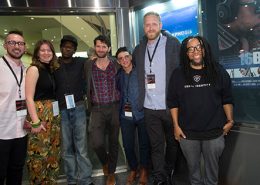 https://www.cafilm.org/wp-content/uploads/2018/07/16bars_post.jpg
315
560
1_cafilm@org-94901
https://www.cafilm.org/wp-content/uploads/2022/12/cafilm2023_web_home_002.png
1_cafilm@org-949012018-07-06 14:21:252018-07-10 17:29:1016 BARS
https://www.cafilm.org/wp-content/uploads/2018/07/16bars_post.jpg
315
560
1_cafilm@org-94901
https://www.cafilm.org/wp-content/uploads/2022/12/cafilm2023_web_home_002.png
1_cafilm@org-949012018-07-06 14:21:252018-07-10 17:29:1016 BARS https://www.cafilm.org/wp-content/uploads/2018/06/earlybird_specialz_social.jpg
900
900
1_cafilm@org-94901
https://www.cafilm.org/wp-content/uploads/2022/12/cafilm2023_web_home_002.png
1_cafilm@org-949012018-06-29 12:06:382018-06-29 12:08:51The Latest MVFF news!
https://www.cafilm.org/wp-content/uploads/2018/06/earlybird_specialz_social.jpg
900
900
1_cafilm@org-94901
https://www.cafilm.org/wp-content/uploads/2022/12/cafilm2023_web_home_002.png
1_cafilm@org-949012018-06-29 12:06:382018-06-29 12:08:51The Latest MVFF news! https://www.cafilm.org/wp-content/uploads/2018/05/member_slider_lowestprice.jpg
430
1500
1_cafilm@org-94901
https://www.cafilm.org/wp-content/uploads/2022/12/cafilm2023_web_home_002.png
1_cafilm@org-949012018-05-25 16:29:152018-05-25 16:29:59New CFI Membership Benefit and Upcoming Rafael Programs!
https://www.cafilm.org/wp-content/uploads/2018/05/member_slider_lowestprice.jpg
430
1500
1_cafilm@org-94901
https://www.cafilm.org/wp-content/uploads/2022/12/cafilm2023_web_home_002.png
1_cafilm@org-949012018-05-25 16:29:152018-05-25 16:29:59New CFI Membership Benefit and Upcoming Rafael Programs! https://www.cafilm.org/wp-content/uploads/2018/05/050618_Doclands_byTommyLau_16.jpg
1667
2500
1_cafilm@org-94901
https://www.cafilm.org/wp-content/uploads/2022/12/cafilm2023_web_home_002.png
1_cafilm@org-949012018-05-10 16:52:272018-05-11 10:49:33DocLands: That’s A Wrap!
https://www.cafilm.org/wp-content/uploads/2018/05/050618_Doclands_byTommyLau_16.jpg
1667
2500
1_cafilm@org-94901
https://www.cafilm.org/wp-content/uploads/2022/12/cafilm2023_web_home_002.png
1_cafilm@org-949012018-05-10 16:52:272018-05-11 10:49:33DocLands: That’s A Wrap! https://www.cafilm.org/wp-content/uploads/2018/04/riverslastchance_tkt.jpg
315
560
1_cafilm@org-94901
https://www.cafilm.org/wp-content/uploads/2022/12/cafilm2023_web_home_002.png
1_cafilm@org-949012018-04-05 17:24:242018-04-05 17:39:44DocLands Documentary Film Festival – On Sale Saturday, April 7!
https://www.cafilm.org/wp-content/uploads/2018/04/riverslastchance_tkt.jpg
315
560
1_cafilm@org-94901
https://www.cafilm.org/wp-content/uploads/2022/12/cafilm2023_web_home_002.png
1_cafilm@org-949012018-04-05 17:24:242018-04-05 17:39:44DocLands Documentary Film Festival – On Sale Saturday, April 7!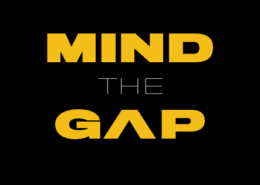 https://www.cafilm.org/wp-content/uploads/2018/03/mtg_blog.png
315
560
1_cafilm@org-94901
https://www.cafilm.org/wp-content/uploads/2022/12/cafilm2023_web_home_002.png
1_cafilm@org-949012018-03-30 14:26:372025-06-25 07:54:31Minding the Gap: Inclusion Riders and CAFILM’s Commitment to Equity
https://www.cafilm.org/wp-content/uploads/2018/03/mtg_blog.png
315
560
1_cafilm@org-94901
https://www.cafilm.org/wp-content/uploads/2022/12/cafilm2023_web_home_002.png
1_cafilm@org-949012018-03-30 14:26:372025-06-25 07:54:31Minding the Gap: Inclusion Riders and CAFILM’s Commitment to Equity https://www.cafilm.org/wp-content/uploads/2018/03/lanm_post.jpg
315
560
1_cafilm@org-94901
https://www.cafilm.org/wp-content/uploads/2022/12/cafilm2023_web_home_002.png
1_cafilm@org-949012018-03-30 13:59:362018-04-02 16:14:46Life and Nothing More wins Film Independent Spirit Award
https://www.cafilm.org/wp-content/uploads/2018/03/lanm_post.jpg
315
560
1_cafilm@org-94901
https://www.cafilm.org/wp-content/uploads/2022/12/cafilm2023_web_home_002.png
1_cafilm@org-949012018-03-30 13:59:362018-04-02 16:14:46Life and Nothing More wins Film Independent Spirit Award https://www.cafilm.org/wp-content/uploads/2018/02/P1030865.jpg
2430
3240
1_cafilm@org-94901
https://www.cafilm.org/wp-content/uploads/2022/12/cafilm2023_web_home_002.png
1_cafilm@org-949012018-02-23 13:23:582018-02-23 13:27:55CFI Member Screenings: Early Man, Last Men in Aleppo and Journey’s End
https://www.cafilm.org/wp-content/uploads/2018/02/P1030865.jpg
2430
3240
1_cafilm@org-94901
https://www.cafilm.org/wp-content/uploads/2022/12/cafilm2023_web_home_002.png
1_cafilm@org-949012018-02-23 13:23:582018-02-23 13:27:55CFI Member Screenings: Early Man, Last Men in Aleppo and Journey’s End https://www.cafilm.org/wp-content/uploads/2018/02/livullmann_post.jpg
315
560
1_cafilm@org-94901
https://www.cafilm.org/wp-content/uploads/2022/12/cafilm2023_web_home_002.png
1_cafilm@org-949012018-02-09 15:02:532018-02-09 15:04:59Bergman 100: A Weekend with Liv Ullmann
https://www.cafilm.org/wp-content/uploads/2018/02/livullmann_post.jpg
315
560
1_cafilm@org-94901
https://www.cafilm.org/wp-content/uploads/2022/12/cafilm2023_web_home_002.png
1_cafilm@org-949012018-02-09 15:02:532018-02-09 15:04:59Bergman 100: A Weekend with Liv Ullmann https://www.cafilm.org/wp-content/uploads/2017/12/mindthegphonors_postimage.jpg
300
472
1_cafilm@org-94901
https://www.cafilm.org/wp-content/uploads/2022/12/cafilm2023_web_home_002.png
1_cafilm@org-949012017-12-23 20:18:102017-12-23 20:18:10MIND THE GAP HONORS
https://www.cafilm.org/wp-content/uploads/2017/12/mindthegphonors_postimage.jpg
300
472
1_cafilm@org-94901
https://www.cafilm.org/wp-content/uploads/2022/12/cafilm2023_web_home_002.png
1_cafilm@org-949012017-12-23 20:18:102017-12-23 20:18:10MIND THE GAP HONORS https://www.cafilm.org/wp-content/uploads/2017/12/mvffeducation_mindthegp_postimage.jpg
300
472
1_cafilm@org-94901
https://www.cafilm.org/wp-content/uploads/2022/12/cafilm2023_web_home_002.png
1_cafilm@org-949012017-12-23 12:37:402017-12-26 12:45:21MIND THE GAP AND MVFF EDUCATION
https://www.cafilm.org/wp-content/uploads/2017/12/mvffeducation_mindthegp_postimage.jpg
300
472
1_cafilm@org-94901
https://www.cafilm.org/wp-content/uploads/2022/12/cafilm2023_web_home_002.png
1_cafilm@org-949012017-12-23 12:37:402017-12-26 12:45:21MIND THE GAP AND MVFF EDUCATION https://www.cafilm.org/wp-content/uploads/2017/12/mvff40_mindthegp_postimage.jpg
300
472
1_cafilm@org-94901
https://www.cafilm.org/wp-content/uploads/2022/12/cafilm2023_web_home_002.png
1_cafilm@org-949012017-12-23 10:56:142017-12-23 11:20:37MIND THE GAP
https://www.cafilm.org/wp-content/uploads/2017/12/mvff40_mindthegp_postimage.jpg
300
472
1_cafilm@org-94901
https://www.cafilm.org/wp-content/uploads/2022/12/cafilm2023_web_home_002.png
1_cafilm@org-949012017-12-23 10:56:142017-12-23 11:20:37MIND THE GAP https://www.cafilm.org/wp-content/uploads/2017/10/fencer_post.jpg
315
560
1_cafilm@org-94901
https://www.cafilm.org/wp-content/uploads/2022/12/cafilm2023_web_home_002.png
1_cafilm@org-949012017-10-04 13:10:002017-10-04 13:11:15THE FENCER
https://www.cafilm.org/wp-content/uploads/2017/10/fencer_post.jpg
315
560
1_cafilm@org-94901
https://www.cafilm.org/wp-content/uploads/2022/12/cafilm2023_web_home_002.png
1_cafilm@org-949012017-10-04 13:10:002017-10-04 13:11:15THE FENCER https://www.cafilm.org/wp-content/uploads/2017/10/Joanne_Headshot_web.jpg
334
500
1_cafilm@org-94901
https://www.cafilm.org/wp-content/uploads/2022/12/cafilm2023_web_home_002.png
1_cafilm@org-949012017-10-04 12:56:122017-10-27 11:10:53JOANNE PARSONT
https://www.cafilm.org/wp-content/uploads/2017/10/Joanne_Headshot_web.jpg
334
500
1_cafilm@org-94901
https://www.cafilm.org/wp-content/uploads/2022/12/cafilm2023_web_home_002.png
1_cafilm@org-949012017-10-04 12:56:122017-10-27 11:10:53JOANNE PARSONT https://www.cafilm.org/wp-content/uploads/2017/10/dolores_post.jpg
315
560
1_cafilm@org-94901
https://www.cafilm.org/wp-content/uploads/2022/12/cafilm2023_web_home_002.png
1_cafilm@org-949012017-10-04 12:47:432017-10-04 12:51:45DOLORES Movie Screening
https://www.cafilm.org/wp-content/uploads/2017/10/dolores_post.jpg
315
560
1_cafilm@org-94901
https://www.cafilm.org/wp-content/uploads/2022/12/cafilm2023_web_home_002.png
1_cafilm@org-949012017-10-04 12:47:432017-10-04 12:51:45DOLORES Movie Screening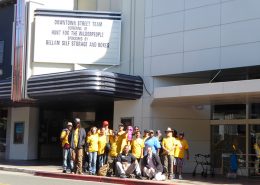 https://www.cafilm.org/wp-content/uploads/2017/06/streetteam_outside_blog.jpg
525
700
1_cafilm@org-94901
https://www.cafilm.org/wp-content/uploads/2022/12/cafilm2023_web_home_002.png
1_cafilm@org-949012017-06-22 12:01:192017-06-22 12:01:19DOWNTOWN STREETS TEAM MARIN COMMUNITY SCREENING
https://www.cafilm.org/wp-content/uploads/2017/06/streetteam_outside_blog.jpg
525
700
1_cafilm@org-94901
https://www.cafilm.org/wp-content/uploads/2022/12/cafilm2023_web_home_002.png
1_cafilm@org-949012017-06-22 12:01:192017-06-22 12:01:19DOWNTOWN STREETS TEAM MARIN COMMUNITY SCREENING https://www.cafilm.org/wp-content/uploads/2017/06/mars.png
487
700
1_cafilm@org-94901
https://www.cafilm.org/wp-content/uploads/2022/12/cafilm2023_web_home_002.png
1_cafilm@org-949012017-06-22 12:00:292017-07-06 18:00:55SCIENCE ON SCREEN®
https://www.cafilm.org/wp-content/uploads/2017/06/mars.png
487
700
1_cafilm@org-94901
https://www.cafilm.org/wp-content/uploads/2022/12/cafilm2023_web_home_002.png
1_cafilm@org-949012017-06-22 12:00:292017-07-06 18:00:55SCIENCE ON SCREEN® https://www.cafilm.org/wp-content/uploads/2017/06/DocPitch©TommyLau_16.jpg
333
500
1_cafilm@org-94901
https://www.cafilm.org/wp-content/uploads/2022/12/cafilm2023_web_home_002.png
1_cafilm@org-949012017-06-22 11:58:472017-07-06 18:02:32DocPitch at DocLands!
https://www.cafilm.org/wp-content/uploads/2017/06/DocPitch©TommyLau_16.jpg
333
500
1_cafilm@org-94901
https://www.cafilm.org/wp-content/uploads/2022/12/cafilm2023_web_home_002.png
1_cafilm@org-949012017-06-22 11:58:472017-07-06 18:02:32DocPitch at DocLands!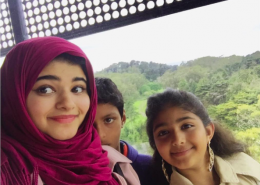 https://www.cafilm.org/wp-content/uploads/2017/06/misbah.png
441
593
1_cafilm@org-94901
https://www.cafilm.org/wp-content/uploads/2022/12/cafilm2023_web_home_002.png
1_cafilm@org-949012017-06-22 10:11:482017-06-22 11:57:14MEET MISBAH
https://www.cafilm.org/wp-content/uploads/2017/06/misbah.png
441
593
1_cafilm@org-94901
https://www.cafilm.org/wp-content/uploads/2022/12/cafilm2023_web_home_002.png
1_cafilm@org-949012017-06-22 10:11:482017-06-22 11:57:14MEET MISBAH https://www.cafilm.org/wp-content/uploads/2017/03/claudia-katayanagi-director-1.jpeg
757
750
1_cafilm@org-94901
https://www.cafilm.org/wp-content/uploads/2022/12/cafilm2023_web_home_002.png
1_cafilm@org-949012017-03-29 16:34:342017-04-07 12:16:27Interview with A Bitter Legacy’s Claudia Katayanagi
https://www.cafilm.org/wp-content/uploads/2017/03/claudia-katayanagi-director-1.jpeg
757
750
1_cafilm@org-94901
https://www.cafilm.org/wp-content/uploads/2022/12/cafilm2023_web_home_002.png
1_cafilm@org-949012017-03-29 16:34:342017-04-07 12:16:27Interview with A Bitter Legacy’s Claudia Katayanagi https://www.cafilm.org/wp-content/uploads/2017/03/Screen-Shot-2017-03-29-at-4.16.52-PM.png
897
1202
1_cafilm@org-94901
https://www.cafilm.org/wp-content/uploads/2022/12/cafilm2023_web_home_002.png
1_cafilm@org-949012017-03-29 16:20:032017-04-07 12:17:08Community Partnerships in 2017
https://www.cafilm.org/wp-content/uploads/2017/03/Screen-Shot-2017-03-29-at-4.16.52-PM.png
897
1202
1_cafilm@org-94901
https://www.cafilm.org/wp-content/uploads/2022/12/cafilm2023_web_home_002.png
1_cafilm@org-949012017-03-29 16:20:032017-04-07 12:17:08Community Partnerships in 2017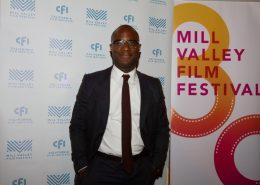 https://www.cafilm.org/wp-content/uploads/2017/03/DirectorsNight@Sequoia_MoonlightMonsterCalls_WGordon-7b-1030x687_photocred_WillGordon-1.jpg
687
1030
1_cafilm@org-94901
https://www.cafilm.org/wp-content/uploads/2022/12/cafilm2023_web_home_002.png
1_cafilm@org-949012017-03-29 15:56:002017-06-19 10:00:36Awards Night 2017
https://www.cafilm.org/wp-content/uploads/2017/03/DirectorsNight@Sequoia_MoonlightMonsterCalls_WGordon-7b-1030x687_photocred_WillGordon-1.jpg
687
1030
1_cafilm@org-94901
https://www.cafilm.org/wp-content/uploads/2022/12/cafilm2023_web_home_002.png
1_cafilm@org-949012017-03-29 15:56:002017-06-19 10:00:36Awards Night 2017 https://www.cafilm.org/wp-content/uploads/2017/03/030717_EYF_byTommyLau_66.jpg
1500
2250
1_cafilm@org-94901
https://www.cafilm.org/wp-content/uploads/2022/12/cafilm2023_web_home_002.png
1_cafilm@org-949012017-03-29 15:32:462017-04-07 12:20:16CFI Education’s 9th Annual Environmental Youth Forum
https://www.cafilm.org/wp-content/uploads/2017/03/030717_EYF_byTommyLau_66.jpg
1500
2250
1_cafilm@org-94901
https://www.cafilm.org/wp-content/uploads/2022/12/cafilm2023_web_home_002.png
1_cafilm@org-949012017-03-29 15:32:462017-04-07 12:20:16CFI Education’s 9th Annual Environmental Youth Forum https://www.cafilm.org/wp-content/uploads/2016/12/Viva-El-Cine.jpg
2000
3400
1_cafilm@org-94901
https://www.cafilm.org/wp-content/uploads/2022/12/cafilm2023_web_home_002.png
1_cafilm@org-949012016-12-27 20:00:242016-12-27 20:22:20¡Viva El Cine! at MVFF
https://www.cafilm.org/wp-content/uploads/2016/12/Viva-El-Cine.jpg
2000
3400
1_cafilm@org-94901
https://www.cafilm.org/wp-content/uploads/2022/12/cafilm2023_web_home_002.png
1_cafilm@org-949012016-12-27 20:00:242016-12-27 20:22:20¡Viva El Cine! at MVFF https://www.cafilm.org/wp-content/uploads/2016/12/lala-land.jpg
377
670
1_cafilm@org-94901
https://www.cafilm.org/wp-content/uploads/2022/12/cafilm2023_web_home_002.png
1_cafilm@org-949012016-12-27 18:47:202016-12-27 20:09:26MVFF Supports Established and Emerging Filmmakers
https://www.cafilm.org/wp-content/uploads/2016/12/lala-land.jpg
377
670
1_cafilm@org-94901
https://www.cafilm.org/wp-content/uploads/2022/12/cafilm2023_web_home_002.png
1_cafilm@org-949012016-12-27 18:47:202016-12-27 20:09:26MVFF Supports Established and Emerging Filmmakers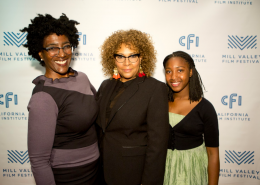 https://www.cafilm.org/wp-content/uploads/2016/12/Screen-Shot-2016-12-22-at-5.18.09-PM-1.png
609
918
1_cafilm@org-94901
https://www.cafilm.org/wp-content/uploads/2022/12/cafilm2023_web_home_002.png
1_cafilm@org-949012016-12-27 18:37:432017-08-09 10:25:49Ta’Naejah’s Journey
https://www.cafilm.org/wp-content/uploads/2016/12/Screen-Shot-2016-12-22-at-5.18.09-PM-1.png
609
918
1_cafilm@org-94901
https://www.cafilm.org/wp-content/uploads/2022/12/cafilm2023_web_home_002.png
1_cafilm@org-949012016-12-27 18:37:432017-08-09 10:25:49Ta’Naejah’s Journey https://www.cafilm.org/wp-content/uploads/2016/12/Screen-Shot-2016-12-22-at-5.26.21-PM-1.png
717
931
1_cafilm@org-94901
https://www.cafilm.org/wp-content/uploads/2022/12/cafilm2023_web_home_002.png
1_cafilm@org-949012016-12-27 18:03:552017-08-09 13:25:22Mind the Gap: Women | Film | Tech at the 39th Mill Valley Film Festival
https://www.cafilm.org/wp-content/uploads/2016/12/Screen-Shot-2016-12-22-at-5.26.21-PM-1.png
717
931
1_cafilm@org-94901
https://www.cafilm.org/wp-content/uploads/2022/12/cafilm2023_web_home_002.png
1_cafilm@org-949012016-12-27 18:03:552017-08-09 13:25:22Mind the Gap: Women | Film | Tech at the 39th Mill Valley Film Festival https://www.cafilm.org/wp-content/uploads/2016/09/Lodge-Exterior-Dusk-Retouched-100PX.jpg
667
1000
1_cafilm@org-94901
https://www.cafilm.org/wp-content/uploads/2022/12/cafilm2023_web_home_002.png
1_cafilm@org-949012016-09-29 02:37:012018-05-02 23:48:39Lodge at Tiburon Sweepstakes
https://www.cafilm.org/wp-content/uploads/2016/09/Lodge-Exterior-Dusk-Retouched-100PX.jpg
667
1000
1_cafilm@org-94901
https://www.cafilm.org/wp-content/uploads/2022/12/cafilm2023_web_home_002.png
1_cafilm@org-949012016-09-29 02:37:012018-05-02 23:48:39Lodge at Tiburon Sweepstakes https://www.cafilm.org/wp-content/uploads/2018/03/mtg_blog.png
315
560
1_cafilm@org-94901
https://www.cafilm.org/wp-content/uploads/2022/12/cafilm2023_web_home_002.png
1_cafilm@org-949012016-09-28 23:08:262025-06-25 07:56:34Mind the Gap: Women | Film | Tech
https://www.cafilm.org/wp-content/uploads/2018/03/mtg_blog.png
315
560
1_cafilm@org-94901
https://www.cafilm.org/wp-content/uploads/2022/12/cafilm2023_web_home_002.png
1_cafilm@org-949012016-09-28 23:08:262025-06-25 07:56:34Mind the Gap: Women | Film | Tech https://www.cafilm.org/wp-content/uploads/2016/05/eyf_blog.png
315
560
1_cafilm@org-94901
https://www.cafilm.org/wp-content/uploads/2022/12/cafilm2023_web_home_002.png
1_cafilm@org-949012016-05-23 17:32:072025-06-25 08:00:37Environmental Youth Forum
https://www.cafilm.org/wp-content/uploads/2016/05/eyf_blog.png
315
560
1_cafilm@org-94901
https://www.cafilm.org/wp-content/uploads/2022/12/cafilm2023_web_home_002.png
1_cafilm@org-949012016-05-23 17:32:072025-06-25 08:00:37Environmental Youth Forum https://www.cafilm.org/wp-content/uploads/2015/01/redmayne_nivo.png
400
600
1_cafilm@org-94901
https://www.cafilm.org/wp-content/uploads/2022/12/cafilm2023_web_home_002.png
1_cafilm@org-949012015-01-15 14:45:142021-01-15 14:41:01What Do MVFF and The Oscars Have In Common? A Lot
https://www.cafilm.org/wp-content/uploads/2015/01/redmayne_nivo.png
400
600
1_cafilm@org-94901
https://www.cafilm.org/wp-content/uploads/2022/12/cafilm2023_web_home_002.png
1_cafilm@org-949012015-01-15 14:45:142021-01-15 14:41:01What Do MVFF and The Oscars Have In Common? A Lot https://www.cafilm.org/wp-content/uploads/2014/11/planes-trains-and-automobiles-poster1.jpg
439
780
1_cafilm@org-94901
https://www.cafilm.org/wp-content/uploads/2022/12/cafilm2023_web_home_002.png
1_cafilm@org-949012014-11-10 13:58:302015-01-16 16:34:49Top 5 Movies To Be Thankful For This Thanksgiving
https://www.cafilm.org/wp-content/uploads/2014/11/planes-trains-and-automobiles-poster1.jpg
439
780
1_cafilm@org-94901
https://www.cafilm.org/wp-content/uploads/2022/12/cafilm2023_web_home_002.png
1_cafilm@org-949012014-11-10 13:58:302015-01-16 16:34:49Top 5 Movies To Be Thankful For This Thanksgiving https://www.cafilm.org/wp-content/uploads/2014/10/IMG_0049.jpg
480
640
1_cafilm@org-94901
https://www.cafilm.org/wp-content/uploads/2022/12/cafilm2023_web_home_002.png
1_cafilm@org-949012014-10-16 14:44:482015-01-16 16:36:05MVFF37 Member Film and Party!
https://www.cafilm.org/wp-content/uploads/2014/10/IMG_0049.jpg
480
640
1_cafilm@org-94901
https://www.cafilm.org/wp-content/uploads/2022/12/cafilm2023_web_home_002.png
1_cafilm@org-949012014-10-16 14:44:482015-01-16 16:36:05MVFF37 Member Film and Party! https://www.cafilm.org/wp-content/uploads/2014/10/0270-MVFF-BenS-131013-copy.jpg
2401
3602
1_cafilm@org-94901
https://www.cafilm.org/wp-content/uploads/2022/12/cafilm2023_web_home_002.png
1_cafilm@org-949012014-10-09 14:32:152015-01-16 17:26:11Spotlight VS Tribute
https://www.cafilm.org/wp-content/uploads/2014/10/0270-MVFF-BenS-131013-copy.jpg
2401
3602
1_cafilm@org-94901
https://www.cafilm.org/wp-content/uploads/2022/12/cafilm2023_web_home_002.png
1_cafilm@org-949012014-10-09 14:32:152015-01-16 17:26:11Spotlight VS Tribute https://www.cafilm.org/wp-content/uploads/2014/10/openinggala_davidshultz_02b.jpg
600
900
1_cafilm@org-94901
https://www.cafilm.org/wp-content/uploads/2022/12/cafilm2023_web_home_002.png
1_cafilm@org-949012014-10-02 11:35:072021-01-19 14:02:19Festival Fashion Fun
https://www.cafilm.org/wp-content/uploads/2014/10/openinggala_davidshultz_02b.jpg
600
900
1_cafilm@org-94901
https://www.cafilm.org/wp-content/uploads/2022/12/cafilm2023_web_home_002.png
1_cafilm@org-949012014-10-02 11:35:072021-01-19 14:02:19Festival Fashion Fun https://www.cafilm.org/wp-content/uploads/2014/09/71.jpeg
183
275
1_cafilm@org-94901
https://www.cafilm.org/wp-content/uploads/2022/12/cafilm2023_web_home_002.png
1_cafilm@org-949012014-09-26 17:57:112021-01-15 14:49:06Its Trivia Time!
https://www.cafilm.org/wp-content/uploads/2014/09/71.jpeg
183
275
1_cafilm@org-94901
https://www.cafilm.org/wp-content/uploads/2022/12/cafilm2023_web_home_002.png
1_cafilm@org-949012014-09-26 17:57:112021-01-15 14:49:06Its Trivia Time! https://www.cafilm.org/wp-content/uploads/conversation_blur_web_crop2.jpg
483
1500
1_cafilm@org-94901
https://www.cafilm.org/wp-content/uploads/2022/12/cafilm2023_web_home_002.png
1_cafilm@org-949012014-09-24 13:39:182015-01-16 16:43:38A Yom Kippur Message from CFI
https://www.cafilm.org/wp-content/uploads/conversation_blur_web_crop2.jpg
483
1500
1_cafilm@org-94901
https://www.cafilm.org/wp-content/uploads/2022/12/cafilm2023_web_home_002.png
1_cafilm@org-949012014-09-24 13:39:182015-01-16 16:43:38A Yom Kippur Message from CFI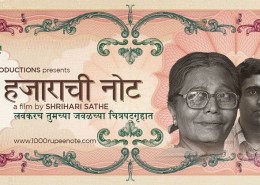 https://www.cafilm.org/wp-content/uploads/2014/09/1000-rupee-front-and-back.jpg
419
960
1_cafilm@org-94901
https://www.cafilm.org/wp-content/uploads/2022/12/cafilm2023_web_home_002.png
1_cafilm@org-949012014-09-24 12:55:182015-01-16 16:45:451000 Rupee Note
https://www.cafilm.org/wp-content/uploads/2014/09/1000-rupee-front-and-back.jpg
419
960
1_cafilm@org-94901
https://www.cafilm.org/wp-content/uploads/2022/12/cafilm2023_web_home_002.png
1_cafilm@org-949012014-09-24 12:55:182015-01-16 16:45:451000 Rupee Note https://www.cafilm.org/wp-content/uploads/conversation_blur_web_crop2.jpg
483
1500
1_cafilm@org-94901
https://www.cafilm.org/wp-content/uploads/2022/12/cafilm2023_web_home_002.png
1_cafilm@org-949012014-09-24 12:54:092021-01-15 14:37:57How to Buy MVFF Tickets Online as a Member
https://www.cafilm.org/wp-content/uploads/conversation_blur_web_crop2.jpg
483
1500
1_cafilm@org-94901
https://www.cafilm.org/wp-content/uploads/2022/12/cafilm2023_web_home_002.png
1_cafilm@org-949012014-09-24 12:54:092021-01-15 14:37:57How to Buy MVFF Tickets Online as a Member https://www.cafilm.org/wp-content/uploads/2014/09/shadows-1.jpg
630
1120
1_cafilm@org-94901
https://www.cafilm.org/wp-content/uploads/2022/12/cafilm2023_web_home_002.png
1_cafilm@org-949012014-09-19 15:28:172021-01-15 14:41:23But Really. What DO We Do In The Shadows?
https://www.cafilm.org/wp-content/uploads/2014/09/shadows-1.jpg
630
1120
1_cafilm@org-94901
https://www.cafilm.org/wp-content/uploads/2022/12/cafilm2023_web_home_002.png
1_cafilm@org-949012014-09-19 15:28:172021-01-15 14:41:23But Really. What DO We Do In The Shadows? https://www.cafilm.org/wp-content/uploads/conversation_blur_web_crop2.jpg
483
1500
1_cafilm@org-94901
https://www.cafilm.org/wp-content/uploads/2022/12/cafilm2023_web_home_002.png
1_cafilm@org-949012014-08-27 16:12:162021-01-15 14:46:16How To Redeem Your Two Guest Vouchers to the Rafael Online
https://www.cafilm.org/wp-content/uploads/conversation_blur_web_crop2.jpg
483
1500
1_cafilm@org-94901
https://www.cafilm.org/wp-content/uploads/2022/12/cafilm2023_web_home_002.png
1_cafilm@org-949012014-08-27 16:12:162021-01-15 14:46:16How To Redeem Your Two Guest Vouchers to the Rafael Online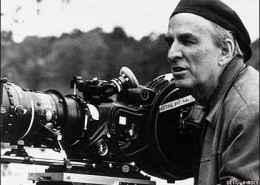 https://www.cafilm.org/wp-content/uploads/2014/07/ingmar-bergman.jpg
300
416
1_cafilm@org-94901
https://www.cafilm.org/wp-content/uploads/2022/12/cafilm2023_web_home_002.png
1_cafilm@org-949012014-07-08 12:48:282021-02-09 17:53:15Ingmar Bergman, Getting Deep
https://www.cafilm.org/wp-content/uploads/2014/07/ingmar-bergman.jpg
300
416
1_cafilm@org-94901
https://www.cafilm.org/wp-content/uploads/2022/12/cafilm2023_web_home_002.png
1_cafilm@org-949012014-07-08 12:48:282021-02-09 17:53:15Ingmar Bergman, Getting Deep https://www.cafilm.org/wp-content/uploads/conversation_blur_web_crop2.jpg
483
1500
1_cafilm@org-94901
https://www.cafilm.org/wp-content/uploads/2022/12/cafilm2023_web_home_002.png
1_cafilm@org-949012014-07-08 12:47:082015-01-16 16:57:31How To Renew Your Membership – Instructions Included
https://www.cafilm.org/wp-content/uploads/conversation_blur_web_crop2.jpg
483
1500
1_cafilm@org-94901
https://www.cafilm.org/wp-content/uploads/2022/12/cafilm2023_web_home_002.png
1_cafilm@org-949012014-07-08 12:47:082015-01-16 16:57:31How To Renew Your Membership – Instructions Included https://www.cafilm.org/wp-content/uploads/conversation_blur_web_crop2.jpg
483
1500
1_cafilm@org-94901
https://www.cafilm.org/wp-content/uploads/2022/12/cafilm2023_web_home_002.png
1_cafilm@org-949012014-07-08 12:43:122021-01-15 14:42:46How To Buy Rafael Tickets at the Member Price Online
https://www.cafilm.org/wp-content/uploads/conversation_blur_web_crop2.jpg
483
1500
1_cafilm@org-94901
https://www.cafilm.org/wp-content/uploads/2022/12/cafilm2023_web_home_002.png
1_cafilm@org-949012014-07-08 12:43:122021-01-15 14:42:46How To Buy Rafael Tickets at the Member Price Online
